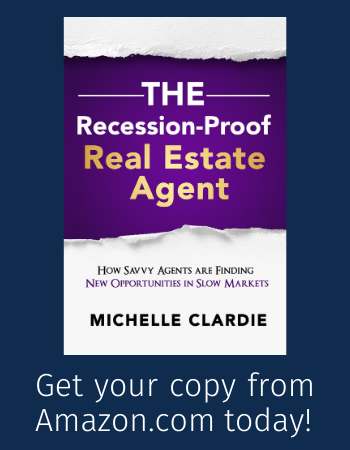Do you have an exit plan from your real estate career?
Every real estate agent needs an exit plan.
Retiring from a career in real estate marks a significant milestone, but careful planning is essential to ensure a comfortable and fulfilling retirement. This post provides a comprehensive guide to preparing financially for retirement, generating passive income from real estate assets, recognizing the right time to retire, and smoothly transitioning into the retiree lifestyle.
How to retire from real estate:
- Plan for retirement early
- Create a retirement budget
- Decide how much to save and invest
- Choose passive income streams to supplement your retirement
- Put your plan into action
- Automate your savings and investments
- Start building your passive income streams
- Watch for signs that you’re ready to retire
- Plan for a smooth transition
- Shift your mindset
How to Retire from Real Estate
Here is your simple, five-step process to retire from your real estate career.
Step 1. Plan For Retirement Long Before You’re Ready to Retire
Many of us don’t start thinking about retirement until we’re nearing retirement age. And, by that point, your options for funding your retirement are limited.
Now, if you are one of the many agents in their 40s or 50s who have been too busy building your business and living your life to create a retirement plan, don’t stress. We’re going to discuss a few ways that you can fund your retirement without the support of decades of savings and investments.
But, if you’re in your 20s or 30s, you have a golden opportunity to turn small investments into a massive nest egg over time.
So, regardless of how long you have until retirement, start planning now.
By the way, this is the single hardest step in preparing to retire from real estate. Once you have a good plan, everything else will fall into place as you follow the plan.
1. Create a Retirement Budget
Knowing how to retire from real estate requires knowing how much money you’ll need to cover your expenses in retirement. That’s why the very first step in planning for your real estate retirement is to create a budget.
Here’s how:
- List your current expenses. I like to list annual amounts, and then divide by 12 to get the monthly amounts. This way, if you have expenses that only hit during certain months (like car registration or holiday spending), you can still plan to set aside a bit of income each month to cover those expenses when they come up.
- Adjust these expenses to reflect the lifestyle you want during retirement. For example, you might be able to spend far less on gas once you retire, but you might want to spend more on travel.
- Total your expenses. Add up all the expenses you listed to come up with an annual total and monthly average.
- Build in a cushion. We always spend more than we plan to. So go ahead and add 10-20% (depending on your personal risk tolerance) as a cushion.
- Account for inflation. The average rate of inflation over the last 50 years has been 3.8% per year. So make sure you plan for the inevitable higher prices of goods and services in the future. You can use an inflation calculator to figure out the estimated future cost of the expenses on your list in your retirement years.
Pro tips:
- Don’t panic when you see the inflated prices. If you have some time until retirement, inflation will also drive up your earnings and your investment returns along the way. And if you’re reaching retirement age soon, we’ll have some tips for you shortly.
- If you’re new to budgeting, check out our Ultimate Real Estate Agent Budget for more detailed help with your budget.
- If you have a tax accountant, you may want to enlist their help in tax planning to avoid overpaying in taxes during retirement.
2. Decide How Much to Save and Invest for Retirement
Now that you know how much you’ll need to cover your expenses in retirement, you can decide how much you need to save and invest to cover those expenses.
There is a difference between saving and investing.
Saving means setting aside cash in a safe, easily accessible place. Investing is when you put your savings to work, allowing you to generate returns and grow your money.
Financially responsible agents maintain both savings and investments.
Savings
Savings are commonly kept in savings accounts. If you’re looking to earn a bit of interest on your savings, a high-yield savings account or even a money market account may serve you better than a traditional savings account.
Your savings should serve as an emergency fund. You want to keep enough cash in this account to cover unexpected expenses. But you don’t want to keep too much in this account, because you could be missing out on investment opportunities that would increase your wealth. In general, you should have enough cash in your savings to cover at least a full month of expenses. But most agents feel more comfortable keeping a bigger cushion, so you might choose to keep three months’ worth of expenses (or even six months’ worth) in your savings.
Your savings account isn’t exactly for retirement, but it does help you retire from real estate by making sure you have a safety net so you don’t have to stop contributing to your retirement accounts (or worse, borrow from them) to cover unexpected expenses.
Investments
Once your savings account is comfortably funded for emergencies, you can turn your attention to investing for retirement from real estate.
A tax-advantaged retirement account is the best place for most agents to start. IRAs (Individual Retirement Accounts), Roth IRAs, SEP IRAs, and Solo 401(k)s are the most popular retirement accounts for real estate agents. We’ll take a closer look at these in just a moment.
All retirement accounts are subject to certain rules. Each account type has an annual investment limit, which typically increases every year, as well as rules about how much money can be withdrawn, and when. There are heavy penalties for withdrawing funds from your retirement account early (with a few exceptions for specific reasons, like buying a first home). This is why you need your savings account ready to cover emergencies; you don’t want to dip into your retirement accounts until you reach the retirement age specified by your account type.
Here are the basics for each of the four primary retirement account types for real estate agents:
- Traditional IRA. Traditional IRAs are pre-tax accounts. This means that any money you contribute to your IRA can be deducted from your income for tax purposes. You will, however, be taxed on this money once you retire and start pulling money from it for living expenses. For this reason, IRAs generally work well for agents who are a few decades away from retirement. The goal is to use pre-tax dollars, which allows you to contribute more now so you can grow your nest egg faster, and then pay the taxes on it once you’re retired (and possibly in a lower tax bracket).
- Roth IRA. Unlike IRAs, Roth IRA contributions are not tax-deductible. You invest after-tax earnings in a Roth IRA, but then you don’t have to pay taxes on that money as you withdraw it during retirement. For this reason, Roth IRAs are generally better for agents who are closer to retirement and more concerned with protecting their wealth than growing it.
- SEP IRA. This is a special type of Traditional IRA designed to serve small business owners, particularly those with employees. SEP stands for Simplified Employee Pension, and it allows you to set aside up to 25% of the business’ income for retirement plans for yourself and your employees.
- Solo 401(k). A Solo 401(k) is a pre-tax account designed for solopreneurs who want to save more than the IRA limits allow.
How to Invest for Retirement as a Real Estate Agent
Here’s a simple three-step plan to help you start investing for retirement today:
- Choose your retirement account type. You can pick from the four popular options above or research less common retirement account types. Of course you can discuss your options with a financial planner if you’re not comfortable making the decision on your own.
- Open your retirement account. You can open a retirement account through a traditional bank or through an online investment platform (like Fidelity, for example). Most account providers will have minimum investment amounts required to open the account. But if you want to start with a small amount, you can look for providers that offer $0 minimum retirement accounts.
- Choose from the investment options within the account. It’s critical to note that putting money in your retirement account doesn’t necessarily mean it’s invested. In most cases, your contributions are simply held in the account until you tell the account which stocks, bonds, or funds (groups of stocks, bonds, or both) you want to invest in. You can make this as simple or as complex as you like. The goal is to grow your money while you can, and then protect what you have as you get closer to retirement. Funds are the best way to balance risk and returns. If you’re young, you can choose aggressive growth funds that are riskier but generally provide higher returns. As you near retirement, you might switch more of your investments into low-risk bond funds. There are even “target date” funds, which balance the risk and return for you based on the retirement date you set! There are tons of resources online to help you choose investments. When in doubt, you can always contact a financial planner.
How Much Should Real Estate Agents Invest for Retirement?
The simple answer is that the amount you invest doesn’t matter nearly as much as how much income you can generate from the investment.
Traditional financial advice suggests that typical employees should set aside at least 12% of their income in a tax-advantaged retirement account. But this advice doesn’t usually apply to real estate agents. You might need to invest more because you’re getting a later start on saving for retirement. Or you might be able to get away with less because you own rental properties that can fund your retirement.
As long as you can make enough money from your investments to cover your living expenses, you’re good!
3. Choose Passive Income Streams to Support Your Retirement
Passive income streams are ways of bringing in money without directly trading your time for dollars. For example, if you own a rental property, you get to collect rent every month, typically without putting full-time (or even part-time) hours into the property. This is a prime example of passive income.
Passive income streams are a smart way for any agent to supplement their retirement investments. But passive income streams are especially important for two groups: 1) agents who want to retire early but have to wait for the designated “retirement age” to withdraw funds from their retirement account, and 2) agents who got a late start on saving/investing for retirement.
It’s important to note that passive income does not mean “easy money.” It takes an investment of time, money, or both to build a passive income stream. The good news is that you can build passive income streams without much money if you’re willing to put in the hours upfront that can pay off later.
Passive Income Ideas for Real Estate Agents
We have a whole article devoted to the best ideas for passive income in real estate. This article includes information on passive income ideas like:
- Blogging about real estate
- Lending money to real estate investors
- Selling digital products in the real estate niche
- Investing for dividend growth
- Owning rental properties
Step 2. Put Your Retirement Plan in Action
The planning you did in Step 1 was the hard part. Now you just need to work that plan. Here’s how.
1. Automate Your Savings and Investments
The more you can automate your savings and investments, the more likely you are to stick with your plan. Ask your broker if your direct deposits from commissions can be split between multiple accounts. Perhaps 10% could automatically be deposited to your retirement account rather than your checking account. That way, you wouldn’t have to remember to transfer funds every time you get paid.
You can also set up your retirement account so that funds deposited in the account automatically purchase more shares of the stocks, bonds, or funds that you’re investing in. And make sure any dividend-producing investments are set to automatically reinvest the dividends. This will help your money grow faster!
2. Start Building Your Passive Income Streams
Passive income streams can take time to establish. So get started right away with whichever streams you’ve chosen to pursue.
Step 3. Watch for Signs that You’re Ready to Retire from Real Estate
How do you know when you’re ready to retire from your real estate career?
Watch for signs like:
- Decreased interest in day-to-day real estate activities,
- Longing for more free time, or
- A feeling of accomplishment or completion in your career.
If your passive income streams can support your expenses, it’s a strong indicator that you’re ready.
And remember, retiring doesn’t have to be an all-or-nothing proposition. Maybe you step down your hours to part-time, or you serve as a consultant rather than an active agent.
Step 4. Plan for a Smooth Transition
Transitioning from real estate to retirement is a process. Remember: you’re in control. You decide when you want to step away and what that looks like. Here are a few things to keep in mind as you get ready to retire from real estate.
- The business you built can continue. You’ve spent years building your real estate business. So instead of just letting it die when you retire, let it live on through another agent. Decide on a successor who will get your contact list and the systems you have in place.
- Your contact list is valuable. You don’t need to give away your contact list to your successor. Instead, you can sell your list for a flat fee or a share of any commissions generated from the contacts on your list.
- Your successor’s character will reflect on you. Don’t sell your business to just anyone. Choose an agent who represents your values and will continue taking good care of your former clients.
- Stay connected to the industry. Your real estate contacts could potentially provide opportunities in the future. Maybe they’ll have a new investment property for you. Or perhaps someone would pay for your service as a consultant or real estate coach.
Step 5. Shift Your Mindset
Many newly retired agents feel a sudden lack of direction on retirement. It’s not easy to go from the hustle of real estate to the leisure of retirement.
Try to embrace your new identity as a retiree. Focus on activities you’ve wanted to pursue but were unable to while working. Reading, gardening, painting, playing music, exercising, traveling, photography…what have you always wanted to spend more time doing? Now you can do it! Make sure you incorporate social activities and activities that allow you to move your body regularly. These will keep you engaged and healthy to help you make the most of your golden years!










